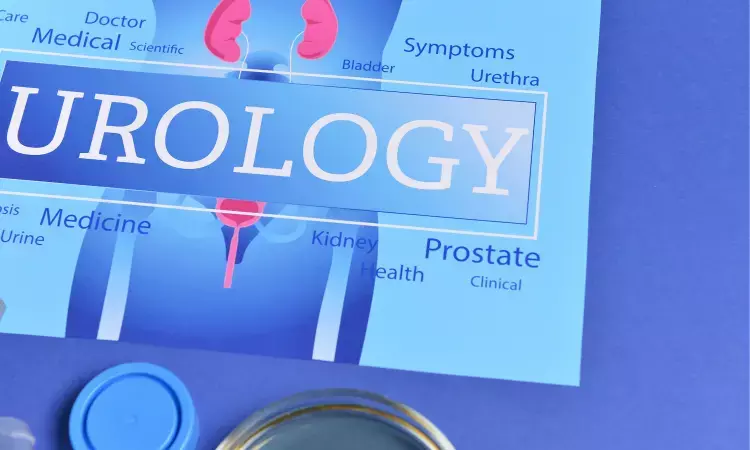- Home
- Medical news & Guidelines
- Anesthesiology
- Cardiology and CTVS
- Critical Care
- Dentistry
- Dermatology
- Diabetes and Endocrinology
- ENT
- Gastroenterology
- Medicine
- Nephrology
- Neurology
- Obstretics-Gynaecology
- Oncology
- Ophthalmology
- Orthopaedics
- Pediatrics-Neonatology
- Psychiatry
- Pulmonology
- Radiology
- Surgery
- Urology
- Laboratory Medicine
- Diet
- Nursing
- Paramedical
- Physiotherapy
- Health news
- Fact Check
- Bone Health Fact Check
- Brain Health Fact Check
- Cancer Related Fact Check
- Child Care Fact Check
- Dental and oral health fact check
- Diabetes and metabolic health fact check
- Diet and Nutrition Fact Check
- Eye and ENT Care Fact Check
- Fitness fact check
- Gut health fact check
- Heart health fact check
- Kidney health fact check
- Medical education fact check
- Men's health fact check
- Respiratory fact check
- Skin and hair care fact check
- Vaccine and Immunization fact check
- Women's health fact check
- AYUSH
- State News
- Andaman and Nicobar Islands
- Andhra Pradesh
- Arunachal Pradesh
- Assam
- Bihar
- Chandigarh
- Chattisgarh
- Dadra and Nagar Haveli
- Daman and Diu
- Delhi
- Goa
- Gujarat
- Haryana
- Himachal Pradesh
- Jammu & Kashmir
- Jharkhand
- Karnataka
- Kerala
- Ladakh
- Lakshadweep
- Madhya Pradesh
- Maharashtra
- Manipur
- Meghalaya
- Mizoram
- Nagaland
- Odisha
- Puducherry
- Punjab
- Rajasthan
- Sikkim
- Tamil Nadu
- Telangana
- Tripura
- Uttar Pradesh
- Uttrakhand
- West Bengal
- Medical Education
- Industry
COVID-19 alters levels of fertility-related proteins in men, study suggests

Although SARS-CoV-2 mainly affects the respiratory system, the virus-and the body's response to it-also damages other tissues. Recent evidence indicates that COVID-19 infection can reduce male fertility, and the virus has been detected in male reproductive organs. Firuza Parikh and Rajesh Parikh at Jaslok Hospital, Sanjeeva Srivastava at the Indian Institute of Technology and colleagues wondered if COVID-19 infection could have long-term impacts on the male reproductive system. To find out, they decided to compare levels of proteins in the semen of healthy men and those who previously had mild or moderate cases of COVID-19.
The researchers analyzed semen samples from 10 healthy men and 17 men who had recently recovered from COVID-19. None of the men, who ranged in age from 20 to 45, had a prior history of infertility. The team found that the recovered men had significantly reduced sperm count and motility, and fewer normally shaped sperm, than men who hadn't had COVID-19. When the researchers analyzed semen proteins using liquid chromatography-tandem mass spectrometry, they found 27 proteins at higher levels and 21 proteins at lower levels in COVID-19-recovered men compared with the control group. Many of the proteins were involved in reproductive function. Two of the fertility-related proteins, semenogelin 1 and prosaposin, were present at less than half their levels in the semen of the COVID-19-recovered group than in the semen of controls. These findings suggest that SARS-CoV-2 has direct or indirect effects on male reproductive health that linger after recovery, the researchers say. The work might also reveal insights into the pathophysiology of human reproduction in recovered men, they add. However, they note that larger studies should be done to confirm these findings, and a control group of men who recently recovered from other flu-like illnesses should be included to ensure that the findings are specific for COVID-19.
To read the full article, click on the following link:
Dr Kamal Kant Kohli-MBBS, DTCD- a chest specialist with more than 30 years of practice and a flair for writing clinical articles, Dr Kamal Kant Kohli joined Medical Dialogues as a Chief Editor of Medical News. Besides writing articles, as an editor, he proofreads and verifies all the medical content published on Medical Dialogues including those coming from journals, studies,medical conferences,guidelines etc. Email: drkohli@medicaldialogues.in. Contact no. 011-43720751


